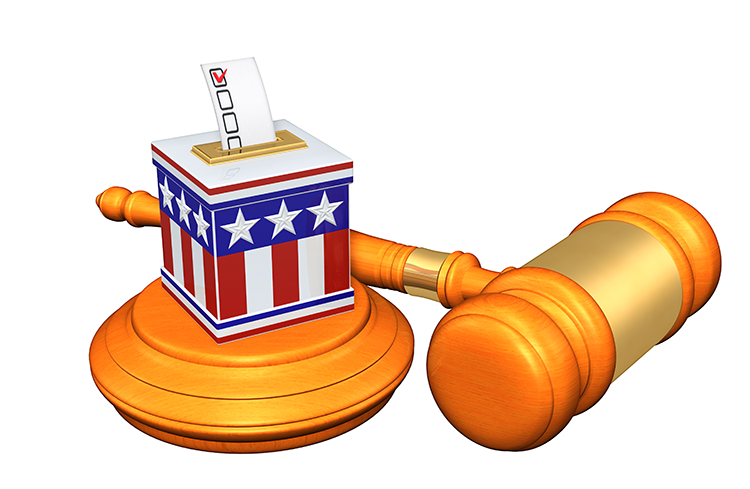Appeals court allows voters who may have moved to stay on the rolls

Image from Shutterstock.com.
A Wisconsin appeals court has ruled that more than 200,000 voters will remain on the state’s voter rolls, overturning a previous order that the voters were invalid because they may have moved.
In its Friday order, the District 4 Court of Appeals in Madison, Wisconsin, also reversed a finding that three Democratic Wisconsin Elections Commission officials were in contempt because they had not removed the voters from the rolls.
The Milwaukee Journal Sentinel, CNN, Courthouse News Service and the Hill have coverage.
The decision allows the voters to remain on the rolls for the state’s April 7 presidential primary. However, Courthouse News Service reports that Wisconsin Attorney General Josh Kaul said voters who moved must be registered at their current address to vote.
In January, the same court ordered a stay of a writ of mandamus handed down by Ozaukee County Circuit Court Judge Paul Malloy to purge voters who were notified by the Wisconsin Elections Commission that they had to either update their registrations or confirm that they still resided at the same address, the Milwaukee Journal Sentinel reports.
The commission had planned to remove the voters from the rolls if they failed to respond by 2021, but Malloy agreed with three voters represented by the conservative Wisconsin Institute for Law and Liberty in his December decision that the state had to remove them sooner.
In addition to finding three Democratic commission members in contempt for leaving the voters on the rolls, he fined the commission $50 per day and the Democratic commissioners $250 per day until they complied. The Milwaukee Journal Sentinel reports that fines were never paid since the appeals court temporary blocked the contempt findings.
The Wisconsin Institute for Law and Liberty claimed in its lawsuit that the commission violated state law by refusing to remove voters who did not respond within 30 days to formal notices asking about possible address changes. In its decision, the appeals court said the law applies to local commissions and not the state commission.
“The commission and the ‘board of election commissioners’ are separate and distinct governmental entities established by the Wisconsin legislature with separate and distinct duties concerning the election laws,” the court wrote in its order.
“The legislature refers to the Wisconsin Elections Commission more than one hundred times as the ‘commission’ in the election laws,” the court continued. “The legislature separately refers to the board of election commissioners as only the ‘board of election commissioners’ more than one hundred times in the election laws.”
Rick Esenberg, the president of the Wisconsin Institute for Law and Liberty, said in a statement reported by the Milwaukee Journal Sentinel that he would appeal the decision to the Wisconsin Supreme Court.
The high court previously declined an early request by Esenberg to settle the dispute.



